Warm and muggy today. There’s a long queue at the Jazz Bar, for a Joni Mitchell tribute. I’m at Biblos restaurant at the corner of Chambers st – another year, I’m not sure I am any wiser though. Biblos has its own music playlist and is off the main beaten tourist track.
Climate emergency. A letter suggests it should be the scientists who need to be in charge and not hedge fund managemers. Can we keep our planet safe, for our children and grandchildren? Can we have hope? We are running out of time now…. The most urgent issue of our times. And some, even with all the wild fires and floods, still don’t take it seriously.
Where Do We Go From here?
It’s good to be back on the high street to savour the excited buzz, the expectant crowds…. There are the handsome young men in kilts, bemused Koreans, retired Edinburgh residents, excited tourists and young families, lively students and the outlandish performers.
First day I enjoyed a walk around the Scottish Portrait galleries - in the central atrium Robert Burns statue enjoys pride of place. There’s also a bust of Elsie Inglis. Here there are contemporary portraits, as well as the historical portraits on the top floor (Jacobites, Stuarts, Hanoverians) all tell of the varied and rich histories of Scotland. Later I recharged my phone at the central Library & enjoyed the High st.
Public funding for the festivals is 11m.
For the cycling world championships, 36m.
There are small gems to be found – classical music concerts at St Andrews church George st or at the Scottish Portrait galleries. Alongside the renowned cultural events sits the gaudy, tacky side – overdone, raucously wild. And the unexpected comedy.
now at the Edinburgh Art College location for its third year there. Since the lockdown years things are now more back to normal. I went to talks with the poet Don Paterson, autobiography Toy Fights; novelist Denise Mina, book Three Fires on Florence culture wars and the bonfire of the vanities;
And a lively political talk on Scotland’s future - Moving Forward: with Kezia Dugdale Lesley Riddoch and Ruth Wishart. If we agree on the destination, how can we then agree on the road to reach it? We must find a middle ground – otherwise we in Scotland are stuck. Riddoch’s new book Thrive – asks what is the road, now its ONLY about the road (currency, borders etc) and not the destination or our common bonds; while Wishart provided excellent sound bites and humour on these critical issues.
EIBF is a good place to recharge batteries, consider reflections.
“I can’t think of anywhere in the world that is more full of belief and joy than Edinburgh at this time.” Andrew O’Hagan
 |
| Jokha Alharthi1 |
 |
| Kamila Shamsie |
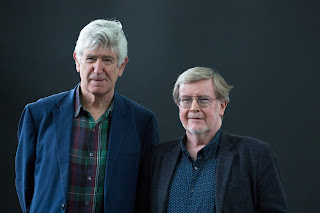 |
| Alexander Moffat & Alan Riach |
Main Venues – Pleasance, Assembly Rooms, Gilded Balloon, Traverse,
The fringe festival programme held more than 3,000 shows, in 288 venues hosting a diverse selection of work from Scotland, the UK and worldwide. Artists, arts industry representatives, media and audiences from 170 countries and with 2,445,609 tickets issued. The themes and issues tackled by artists in the 2023 programme included mental health and wellbeing, disability, queer lives, working-class representation and the climate crisis. Affordability was a big issue, with sky-high hotel prices,
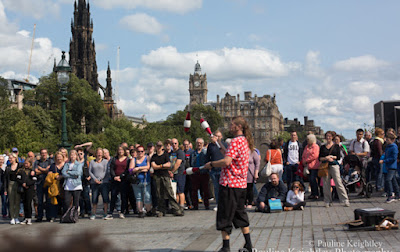
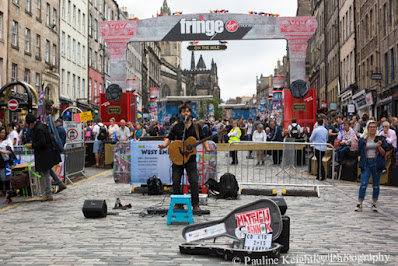

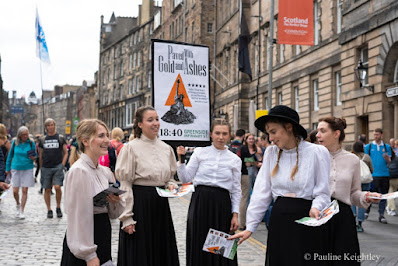
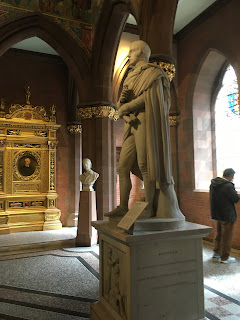
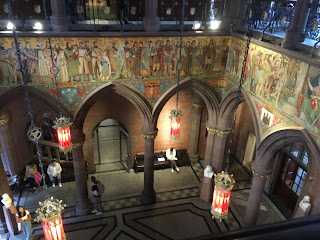







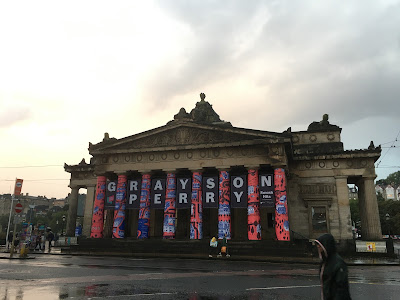









.jpg)



